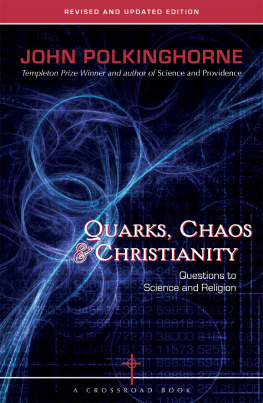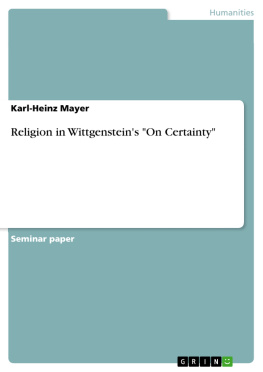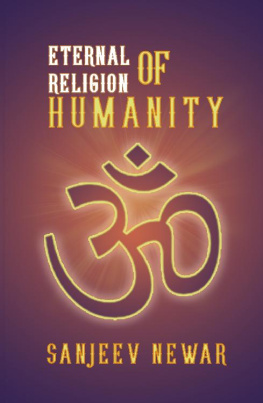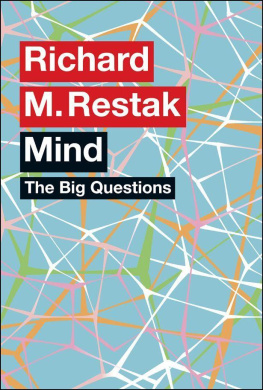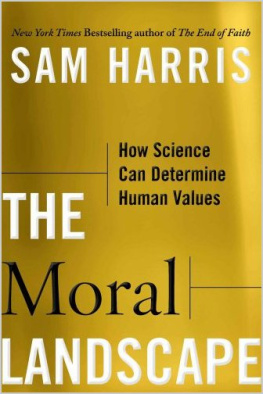THE BIG QUESTIONS
God
Mark Vernon is a journalist, broadcaster and author of several books. He is the editor-in-chief of the Chambers Dictionary of Beliefs and Religions, an honorary research fellow at Birkbeck, University of London, and has degrees in physics and theology and a PhD in philosophy. He used to be a priest in the Church of England, left a convinced atheist, though then had to admit he is too drawn by the big spiritual questions not to take religious traditions and practice seriouslya journey he has written about in his book How to be an Agnostic.
He is a keen blogger at www.markvernon.com .
This book is dedicated to John Vernon.
The Big Questions confronts the fundamental problems of science and philosophy that have perplexed inquiring minds throughout history, and provides and explains the answers of our greatest thinkers. This ambitious series is a unique, accessible and concise distillation of humanitys best ideas.
Series editor Simon Blackburn is Professor of Philosophy at the University of Cambridge, Research Professor of Philosophy at the University of North Carolina and one of the most distinguished philosophers of our day.
Titles in The Big Questions series include:
PHILOSOPHY
PHYSICS
THE UNIVERSE
MATHEMATICS
GOD
EVOLUTION
THE BIG QUESTIONS
God
Mark Vernon
SERIES EDITOR
Simon Blackburn

Contents
Why proofs almost dont fail, and how that is helpful
The politics of faith and the organization of unbelief
How science generates wonder and how stones might speak
Cave art and whether brains make meaning or find it
The oldest spiritual practice, mysticism and the wonder of perception
Organized religion is clearly flawed, but spirituality struggles without it
The power of perception and the issue of divine intervention
On reading between the lines and making the text work
Art, children, life itself. A lot is still surprisingly sacrosanct
What prayer is, what prayer is not, and meditation
Crusades, the evolutionary benefits of deities, and sacrifice
Radicalization and why fundamentalism flourishes in an age of science
Suffering, inner sanctuary, and whether Buddhism is supported by neuroscience
The philosophy that thrives in the worlds most populous country
Animism, ecology, and the struggle to participate with nature
Perennial philosophy and a global ethic of realization
The problem of evil and the humanity of hope
Atheists can be good, believers bad, but theres more to say
Global catastrophe, moral rage, and the thrill of the Rapture
When religions dont teach immortality and the survival of soul
INTRODUCTION
One day a philosopher was asked to define religion. Immediately he begged for time to prepare an answer. The time lapsed, and he returned asking for more. That period passed and he requested another postponement. And then another. And another. At last those asking understood the delays. The philosopher regarded the task as well-nigh impossible, but he still wanted time to contemplate the question. It was too rich to put aside.
This parable, told by the philosopher Sren Kierkegaard, neatly captures why the searching reflected in the answers to the big questions of this book is so fascinating. To ask about God and faith, science and the soul, the spiritual and suffering is to ask about the issues that matter most to humans. It is to participate in the quest that has inspired the worlds most beautiful buildings, the worlds most stirring music, humanitys most profound intuitions and thought. It is to ask about what makes us human. Religion to me has always been the wound, not the bandage, reflected the playwright Dennis Potter, which is to say that the religious person is one who wishes to face the imponderable and tender aspects of life.
Philosophy and reason play a vital part. They are the essential tools of discernment, the careful processes by which experiences, insights and traditions can be assimilated and assessed, and the next step forward charted. They help us pay attention to what goes on in our inner lives and in the world around us. As the great physicist Werner Heisenberg noted, we are lucky to live in a time when our perception of the cosmos is in rapid flux. He advised us to stay open-minded, spiritually as well as empirically, and to check our own view of life, deepened by study and meditation, against the careful results of the great search called science. The mechanical atoms of yesterdays physics have morphed into the lively quantum fields of todays. The blind struggle known as Darwinian evolution is being reinterpreted as a cosmic striving for complexity, emergence and the most extraordinary fact of all: that there is something, not nothing, and that in us, that something can gaze back at the universe that nurtured it.
This, I suspect, is why God has not died, why the spiritual life still draws us. Religious traditions face major challenges, so much so that even those who go to churches, temples, synagogues or mosques may prefer to call themselves spiritual but not religious. But ours is an age of the soul too, in the sense that ecological crises are awakening a desire for a better relationship with nature, or in the sense that the well-being delivered by the copious material goods we can purchase also prompts the thought that there must be more to life, followed by the question: where might that more be found? Faith is often taxing, and is ridiculed by some. But then, as Albert Einstein noted, God is subtle but he is not malicious.
This book is designed to show that some of the oldest questions concerned with spirituality, religion and God can be asked afresh in our day to reveal new and striking possibilities. What we might discover for ourselves also resonates powerfully with the insights of the best theologians and wisest souls of the past. It is as if something fundamental is being excavated; like having a familiar work of art explained, so that it suddenly looks as if you are seeing it properly for the first time. It is as if we live in a moment when the quest for God or spirit is unfolding for us anew.
Perhaps every generation feels a bit like this. What do I love when I love my God? asked St. Augustine. Tend within to the opening of your heart, advised Rumi. Or you may feel more like William James, the psychologist of religion, who declared that his study of the variety of religious experiences found amongst human beings was his religious act. So I hope your questioning and contemplation are nurtured here.
CAN REASON PROVE THE EXISTENCE OF GOD?
Why proofs almost dont fail, and how that is helpful
There is no rational basis for belief in God, it is often insisted. Reason knows that night follows day. Logic fails to underpin faith. But is that right? A closer look at the so-called proofs for God reveals something perhaps unexpected. To see what that is, first take a step back.
Living Christianity
Christianity offers philosophers not one but two patron saints. Whether or not they seek or desire the intercession of these holy individuals is debatable. However, there is wit and insight in the patronage of both.
The first is Justin Martyr. Born in the sleepy backwater of Samaria in the second century AD, he spoke Greek, and so made his way to Roman civilization, where he sat at the feet of the philosophers. He first tried out the Stoics, the most successful of the schools of the time, though they did not satisfy him. They were the closest the ancient world came to champions of self-help, and that inclined them to be obsessed with themselves, with little of interest to say about God. So Justin turned to an Aristotelian teacher, though that did not last beyond the old curmudgeons obsession with fixing the right fee.
Next page

